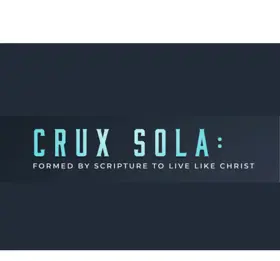
Crux Sola (Nijay Gupta's Blog)
"Crux Sola: Formed by Scripture to Live Like Christ" is the personal blog of NT scholar Nijay K. Gupta. The reviews under this account are not from Gupta himself (see his individual reviewer profile here), but instead draw upon the recommendations of various expert scholars who have guest-posted on his blog. See especially his ongoing series "My Top Six OT Commentaries".
Libraries
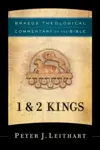

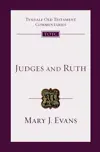

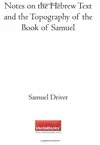

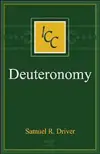

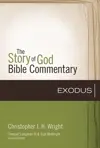

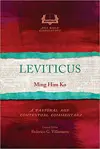

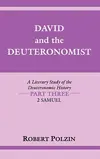

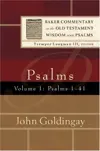


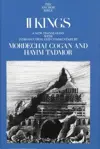

Reviews
The Book of Psalms. NICOT. Eerdmans, 2014.
This single-volume commentary, for me, packs the biggest punch and includes all of the essentials for serious textual analysis: textual-critical notes, careful exegesis, including attention to poetic features, and keen insights into intertextuality and theology.
[Full Review]
Psalms. 3 Vols. BCOT. Baker Academic, 2008.
As one would expect from a three-volume commentary, and from the inimitable John Goldingay, this set is thorough in its exegetical breadth and rich in its theological depth.
[Full Review]
Psalms. 2 Vols. Herm. Fortress Press, 2011.
Although this set is incomplete (both authors passed before the first volume could be completed), it offers unique contributions. First, in its careful attention to historical-critical issues, and second in its extended purview. Each psalm’s relationship to adjacent psalms and to major translations (LXX, Targum) and New Testament use are given thoughtful consideration.
[Full Review]
Psalms. REBC. Zondervan, 2008.
This commentary is streamlined and accessible, but written with the serious student or pastor in mind. Its introduction and topical essays scattered throughout (but helpfully listed in the introduction) are alone worth the price of the commentary.
[Full Review]
Psalms 1–72. ABC. Asia Theological Association, 2016.
In this volume, Villanueva writes from a Filipino-Asian context and invites readers to consider the enduring message of the psalms. He is a master of careful listening, both to the biblical text and to his own context, modeling how to bring the spiritual heart of the psalms to God’s people.
[Full Review]
Psalms 73–150. ABC. Langham Global Library, 2022.
In this volume, Villanueva writes from a Filipino-Asian context and invites readers to consider the enduring message of the psalms. He is a master of careful listening, both to the biblical text and to his own context, modeling how to bring the spiritual heart of the psalms to God’s people.
[Full Review]
Psalms. TOTC. IVP Academic, 2014.
Longman has faithfully upheld the reputation of the TOTC on Psalms by updating Derek Kidner’s classic commentary. True to form, Longman distills expert analysis in a readable form. I recommend it as a resource for pastors and teachers, as a textbook for students, and even for devotional reading.
[Full Review]
Job. 3 Vols. WBC. Thomas Nelson, 2009.
This is the major, comprehensive commentary on Job. While I often dissent from Clines’s interpretations of specific passages, his treatment of the Hebrew text of Job is indispensable for serious study of the book.
[Full Review]
Job 1–21: Interpretation and Commentary. ICS. Eerdmans, 2013.
This is my new favorite substantial Job commentary. I learned Hebrew many years ago from Seow’s Hebrew grammar. This commentary, which combines the history of interpretation with a detailed commentary on the Hebrew text, is paradoxically one of the most lucid and clearly written commentaries I’ve read.
[Full Review]
Job. SHBC. Smyth & Helwys, 2006.
This beautifully laid out commentary takes a predominantly literary approach, with fascinating inserts (some visual) that link Job with many interpreters throughout history, both religious and secular (some extra materials are included on the CD-Rom).
[Full Review]
Job. Int. Westminster John Knox, 1997.
This is one of the most theologically profound Job commentaries that I have come across. Although written primarily for pastors, Janzen brings his knowledge of Hebrew, Semitic languages, and ancient Near Eastern mythology to bear on the text, along with a poetic sensibility and an earthy spirituality. Before I read this commentary, I was drawn to Janzen’s reading of Job in very personal meditation after cancer, called At the Scent of Water: The Ground of Hope in the Book of Job (Grand Rapids: Eerdmans, 2009).
[Full Review]
“Job” in 1 and 2 Maccabees, Job, Psalms. NIB. Abingdon Press, 1996.
A helpful commentary for preachers that is attentive to the multiple possibilities of interpretation on numerous issues throughout the book. It is a precursor to her later monograph on the contest of moral imaginations in Job, which affirms that there is no unifying point of view in the book.
[Full Review]
Approaching Job. Cascade Books, 2017.
Although this is not a commentary, it is a wonderful introduction to Job in four chapters that discuss the book’s content, structure, key individual passages, and theological and ethical implications.
[Full Review]
On Job: God-Talk and the Suffering of the Innocent. Orbis Books, 1987.
A short but powerful commentary by the father of Latin American liberation theology. I am convinced that Gutiérrez is right to see the central problem of Job as how to speak about (and to) God from within a situation of the suffering of the innocent. His reflections on justice and the connection of the book to the suffering of Jesus are inspiring.
[Full Review]
Esther. AYB. Yale University Press, 1971.
This is a classic commentary on Esther which includes a lengthy introduction on canonicity, the absence of religious elements, the reception history of Esther and the Greek versions of Esther. The footnotes in the commentary section provide textual variants and draw on both primary and secondary resources to illuminate the meaning of each verse. The list of illustrations (photos) and maps are helpful in visualizing the context of the book.
[Full Review]
Esther. ICC. T&T Clark, 1908.
This is another classic commentary on Esther. It covers extensive discussions of different versions of the book of Esther including both Hebrew and Greek texts and their respective history of recension. Readers will also find helpful Esther’s history of interpretation from earliest Jewish exegesis to the modern critical period.
[Full Review]
Ruth, Esther. WBC. Thomas Nelson, 1996.
In this commentary series, each chapter starts with a bibliography, author’s translation of the text, critical notes followed by form/structure/setting, comments of the verses, and ends with explanations. I find this commentary, though technical, full of theological insights.
[Full Review]
Esther. JPSBC. Jewish Publication Society of America, 2001.
This commentary juxtaposes the Hebrew text along with its English translation and then provides exegetical insights. The discussion of the genre of the book of Esther is helpful, especially in light of the author’s sensitivity to literary artistry of the text.
[Full Review]
Esther. OTL. Westminster John Knox, 1997.
After a succinct introduction addressing key aspects of the book of Esther, the commentary section includes the Septuagint version of Esther. The literary structure of Esther (Figure 2, p. 8) has shaped later commentators’ interpretation of the book. I also like the theological insights of this commentary.
[Full Review]
Esther. NIVAC. Zondervan, 1999.
This commentary series aims to bridge the ancient context with that of the contemporary one. Each chapter is divided by Esther’s literary unit, from stating its original meaning to bridging context to contemporary significance. The annotated bibliography on Esther (pp. 52-55) is helpful in providing the secondary literature on the book of Esther.
[Full Review]
Ezra-Nehemiah. WBC. Thomas Nelson, 1985.
Hugh Williamson’s commentary, along with Joseph Blenkinsopp’s, set the standard for critical commentaries on Ezra-Nehemiah in the 1980s. Even though this commentary is approaching 40 years old, it remains the gold standard in its careful treatment of the text, its clear evaluation of the critical issues, and its poignant theological engagement.
[Full Review]
Ezra-Nehemiah. OTL. Westminster John Knox, 1988.
Joseph Blenkinsopp's commentary, along with Hugh Williamson's, set the standard for critical commentaries on Ezra-Nehemiah in the 1980s. Even though this commentary is approaching 40 years old, it remains the gold standard in its careful treatment of the text, its clear evaluation of the critical issues, and its poignant theological engagement. Blenkinsopp illuminates the literary, social, and historical aspects of Ezra-Nehemiah, while also concisely outlining the compositional and text-critical issues in the text.
[Full Review]
Ezra-Nehemiah. Int. Westminster John Knox, 1992.
Throntveit’s commentary prioritizes the literary and theological character of the text while still demonstrating awareness of the critical issues. This volume will be of value to both teachers and preachers of these books.
[Full Review]
Ezra and Nehemiah. ABC. Asia Theological Association, 2019.
In this commentary Joseph Too Shao and Rosa Ching Shao interweave robust theological reflection on the text with contextual comments from Asian contexts.
[Full Review]
Ezra. AYB. Yale University Press, 2023.
This highly anticipated volume promises to contribute greatly to the study of Ezra-Nehemiah. Eskenazi is a highly respected voice in Ezra-Nehemiah studies, known particularly for her insightful and historically aware literary readings of these text. This commentary will offer the fruits of a long and influential scholarly career focused on these texts. The volume promises to set a new standard in the study of Ezra-Nehemiah and to update the field in relation to several advances in our understanding of the archaeology, history, and social and economic shape of the Persian Period.
[Full Review]
Ezra-Nehemiah. WBC. Zondervan Academic, forthcoming.
This highly anticipated volume promises to contribute greatly to the study of Ezra-Nehemiah. There have been significant archaeological advances in the study of Ezra-Nehemiah since the last “round” of Ezra-Nehemiah commentaries in major scholarly series, and Fulton’s expertise in both the texts and the archaeology of the Persian period promises to bring those advances to bear on our understanding of the text. The volume promises to set a new standard in the study of Ezra-Nehemiah and to update the field in relation to several advances in our understanding of the archaeology, history, and social and economic shape of the Persian Period.
[Full Review]
Ezra-Nehemiah. OTL. Westminster John Knox, forthcoming.
This highly anticipated volume promises to contribute greatly to the study of Ezra-Nehemiah. Nam brings considerable expertise in the socio-economic landscape of the Persian period to the text, as well as a focus on repatriation as a subfield of immigration studies. It will also include brief forays into the early reception history of the text. The volume promises to set a new standard in the study of Ezra-Nehemiah and to update the field in relation to several advances in our understanding of the archaeology, history, and social and economic shape of the Persian Period.
[Full Review]
I and II Chronicles. OTL. Westminster John Knox, 1993.
This isn’t just a great commentary on Chronicles, I think it’s one of the best commentaries ever written on any biblical book. It begins with a mastery of the nuances of the Hebrew text. And it provides deep insight into the inner-biblical textuality that is so critical to understanding Chronicles. More than this, for such a technical commentary, it’s also relatively concise. This is the first commentary you need for a serious study of Chronicles.
[Full Review]
1 Chronicles. WBC. Thomas Nelson, 1986.
Dillard is one of my favorite commentaries, but Braun is also quite good. They take the historical aspects of Chronicles seriously and nicely explain the interpretive differences between Samuel-Kings and Chronicles.
[Full Review]
2 Chronicles. WBC. Thomas Nelson, 1987.
Dillard is one of my favorite commentaries, but Braun is also quite good. They take the historical aspects of Chronicles seriously and nicely explain the interpretive differences between Samuel-Kings and Chronicles.
[Full Review]
I Chronicles. 2 Vols. AYB. Yale University Press, 2004.
This is a sentimental favorite for me. It’s also among the most exhaustive technical commentaries that you’ll find. No stone is left unturned.
[Full Review]
1 and 2 Chronicles. NCB. Eerdmans, 1982.
A commentary from one of the premier biblical scholars of his generation. Full of rich insights, but presented in brief and readable formats. Very concise. A priceless treasury. After Japhet, it’s the next commentary that I would turn to.
[Full Review]
1 and 2 Chronicles. 2 Vols. LHBOTS. Sheffield Academic Press, 1997.
This commentary ties Chronicles particularly to the Priestly as opposed to the Deuteronomic literature, which I appreciate and think is appropriate. It doesn’t engage much with secondary literature, but focuses on theological and intertextual insights.
[Full Review]
1 and 2 Chronicles. NIVAC. Zondervan, 2003.
This is the commentary that I think would be most useful if I were preaching using Chronicles—something that’s not done often enough since the book itself includes many mini-sermons. It nicely balances explaining original contexts with reflecting on connections with modern contexts. And it’s very accessible.
[Full Review]
1 and 2 Kings. ApOTC. IVP Academic, 2014.
It’s rare to find a commentary on 1–2 Kings that pays attention to textual, historical, literary and theological questions all without becoming burdensome. This commentary is a treasure trove that somehow packs it all in, and more. Even though I’ve listed it in the “technical” section, it’s a must-own.
[Full Review]
I Kings. AYB. Yale University Press, 2001.
Cogan and Tadmor have expertise in Old Testament and Ancient Near Eastern History. These commentaries are the standard reference works on both the Hebrew text of 1–2 Kings and the history that stands behind it.
[Full Review]
II Kings. AYB. Yale University Press, 1988.
Cogan and Tadmor have expertise in Old Testament and Ancient Near Eastern History. These commentaries are the standard reference works on both the Hebrew text of 1–2 Kings and the history that stands behind it.
[Full Review]
I and II Kings. OTL. Westminster John Knox, 2007.
Sweeney’s commentary is not only aware of the scholarly debates surrounding the book of Kings, he navigates them with ease. He helps us to understand the discussions in the academy and provides compelling arguments and syntheses of his own. Useful for scholars and teachers, but not a preaching commentary.
[Full Review]
1 & 2 Kings. UBOT. Hendrickson, 1995.
This is my most frequently recommended commentary for preachers and teachers. Provan provides enough technical data on ancient history and scholarship to inform (but not overwhelm); but he focuses on the theology and message of the book for us today. Clear, concise, and helpful.
[Full Review]
1 and 2 Kings. BTCB. Brazos Press, 2006.
I loved this commentary, but it won’t be for everyone. Leithart uses Kings as a platform from which to launch theological reflection, rather than strictly unpacking the text, but he does it in a captivating and imaginative way. He weaves his theology through with a close reading of Kings and presents it in a series of short essays that each pack a punch of their own.
[Full Review]
The Theology of the Book of Kings. OTT. Cambridge University Press, 2019.
Bodner is engaging and fun to read. This book works through Kings in large sections, focusing on how each contributes to the overall themes and theology of the book. It’s more oriented towards introducing the book overall than expounding individual passages, but scholars and non-specialist readers alike will get a lot out of this one.
[Full Review]
Notes on the Hebrew Text and the Topography of the Book of Samuel. Varda Books, 2006.
S. R. Driver’s Notes on the Hebrew Text and Topography of Samuel (2nd ed., 1913) is a classic still worth every Hebrew student’s attention. Read it for Driver’s insights about Hebrew syntax, not his text-critical proposals (which were eclipsed by the discovery of the Dead Sea Scrolls). Driver really was that good!
[Full Review]
Samuel. 5 Vols. BKAT. Vandenhoeck & Ruprecht, 2011.
The fullest contemporary treatment of Samuel is that of Walter Dietrich (professor emeritus, University of Bern) in Vandenhoeck & Ruprecht’s Biblischer Kommentar series (5 volumes in German thus far, extending through 2 Samuel 20, no English translation yet). Dietrich handles everything from text criticism to narrative criticism. He has spent his entire career with this material and his expertise in it is second to none.
[Full Review]
1 and 2 Samuel: A Commentary. LBI. Zondervan, 1999.
Robert Gordon’s stand-alone commentary I & II Samuel (Zondervan, 1986; note: not his similarly titled OT Guides volume published by JSOT) is a little dated now. But Gordon treats both books of Samuel in a single volume, offers solid translational assistance throughout, and conducts his exegesis in a theologically alert fashion. See especially his discussion of “David and Christ” as a typology entailing contrast as well as similarity.
[Full Review]
Samuel and the Deuteronomist: A Literary Study of the Deuteronomic History (Part 2: 1 Samuel). Indiana University Press, 1993.
The “literary turn” in OT scholarship largely occurred through readings of the Samuel narrative. Two such volumes, full of insights still not often found in other commentaries, are Robert Polzin’s Samuel and the Deuteronomist: 1 Samuel (Harper & Row, 1989) and David and the Deuteronomist: 2 Samuel (Indiana University Press, 1993). These volumes are also very readable.
[Full Review]
David and the Deuteronomist: A Literary Study of the Deuteronomic History (Part 3: 2 Samuel). Indiana University Press, 1993.
The “literary turn” in OT scholarship largely occurred through readings of the Samuel narrative. Two such volumes, full of insights still not often found in other commentaries, are Robert Polzin’s Samuel and the Deuteronomist: 1 Samuel (Harper & Row, 1989) and David and the Deuteronomist: 2 Samuel (Indiana University Press, 1993). These volumes are also very readable.
[Full Review]
1 and 2 Samuel. Belief. Westminster John Knox, 2015.
In keeping with the Belief series, David Jensen’s 1 & 2 Samuel (Westminster John Knox, 2015) firmly keeps its interpretive horizon on contemporary Christian life, but in conjunction with a close reading of the Samuel narrative. Whether you agree with him or not along the way, he provides plenty of food for further thought.
[Full Review]
1 Samuel: Looking for a Leader. PtW. Crossway, 2014.
For a bracing example of christological interpretation, see the two Crossway volumes by John Woodhouse, 1 Samuel: Looking for a Leader (2014) and 2 Samuel: Your Kingdom Come (2015). This type of Christian interpretation has become provocative due to its rarity in modern academic circles, although it remains traditional in the church. Woodhouse is the former principal of Moore Theological College in Sydney, Australia.
[Full Review]
2 Samuel: Your Kingdom Come. PtW. Crossway, 2015.
For a bracing example of christological interpretation, see the two Crossway volumes by John Woodhouse, 1 Samuel: Looking for a Leader (2014) and 2 Samuel: Your Kingdom Come (2015). This type of Christian interpretation has become provocative due to its rarity in modern academic circles, although it remains traditional in the church. Woodhouse is the former principal of Moore Theological College in Sydney, Australia.
[Full Review]
The Book of Ruth. NICOT. Eerdmans, 1989.
Hubbard’s volume on Ruth is an enduring classic. It is well written with careful attention to lexical details, canonicity, historical background, literary analysis, themes, and theological interpretations of the book of Ruth.
[Full Review]
Ruth. AYB. Yale University Press, 2016.
Schipper offers a new translation of Ruth, attentive to linguistic and literary features, historical background, and reception history. Some critical topics in biblical studies addressed in this commentary include ethnicity, exogamy, gender, ability/disability, power dynamics, impoverishment, divine activity, and sexual desire.
[Full Review]
Ruth and Esther. SHBC. Smyth & Helwys, 2016.
This commentary is beautifully written and well organized with a methodological focus on intertextuality. The introduction gives attention to Ruth and Esther in the Megillot, text-critical issues, possible genre designations, and details its canonical history. This commentary highlights connections with indigenous readings of Ruth, along with Ruth’s reception history in film, literature, and art.
[Full Review]
Ruth. ApOTC. IVP Academic, 2015.
Hawk addresses important topics such as genre, ethnicity, exogamy, gender, social class, and sexual ambiguity, composition of the text, and the theology of Ruth. One of the main strengths of this volume is Hawk’s exposition of the text and its connection and application to contemporary contexts (e.g., demonstrating God’s ḥesed to the marginalized). This is an excellent resource for pastors, teachers, and students.
[Full Review]
“Ruth” in Ruth and Esther. BO. Liturgical Press, 1999.
Tod Linafelt focuses on a literary approach to the book of Ruth. This commentary offers an innovative exploration of irony, characterization, intentional ambiguity in the syntax and grammar, issues of identity, and belonging.
[Full Review]
Ruth. AOTC. Abingdon Press, 2012.
Fentress-Williams approaches Ruth as a dialogic comedy through a Bakhtinian lens. Each chapter offers brief and accessible analysis of the literary, exegetical, and theological implications of each chapter in the book of Ruth. I am a Mikhail M. Bakhtin fan so this commentary was an immediate favorite for my collection.
[Full Review]
Judges 1–12. AYB. Yale University Press, 2014.
Jack Sasson’s Anchor Bible Commentary on chs. 1–12 is one of my favorites. It is very Hebrew-oriented, but it stands out from other commentaries as creative and thought-provoking. Sasson takes the Masoretic Text seriously and reads it afresh without getting bogged down in less fruitful discussions.
[Full Review]
The Book of Judges. NICOT. Eerdmans, 2012.
Barry Webb’s NICOT is another more recent volume (2012), but it builds on a monograph Webb wrote decades ago that has shaped literary and theological discussion of Judges. His literary observations are brilliant and provide a foundation for rich and robust exegesis of the book as a whole.
[Full Review]
Judges, Ruth. NAC. Broadman & Holman, 1999.
Daniel Block’s NAC volume on Judges is older, but has become a classic. He follows Webb in more cohesive reading strategies, and builds upon them to offer a thorough and technical commentary that is just as pastoral and convicting as it is rigorous. Block’s careful attention to the structure of the Hebrew text will be a help to any reader working through the book in its original language.
[Full Review]
Judges. BO. Liturgical Press, 2000.
Tammi Schneider’s commentary in the Berit Olam series is really excellent. It offers so much insight into the Hebrew text, but it does so in a way that is eminently approachable for anyone to read. Her observations on the narrative flow are astute. She is keenly attentive to the literary design of Judges and pushes readers to consider the rhetorical impact of the artistic choices evident in the book.
[Full Review]
Judges, Ruth. NIVAC. Zondervan, 2002.
Lawson Younger’s NIVAC commentary is time-tested and has proved to be exceptionally useful in Judges study, so much so that a revised edition was released just last year (2020). Younger draws on a careful reading of the biblical text alongside his extensive ancient Near Eastern expertise to help students of Judges to read it in its original context, with all of its depth, color, and impact. His applications are timely and pastoral.
[Full Review]
Judges, Ruth (Rev. ed.). NIVAC. Zondervan, 2021.
Lawson Younger’s NIVAC commentary is time-tested and has proved to be exceptionally useful in Judges study, so much so that a revised edition was released just last year (2020). Younger draws on a careful reading of the biblical text alongside his extensive ancient Near Eastern expertise to help students of Judges to read it in its original context, with all of its depth, color, and impact. His applications are timely and pastoral.
[Full Review]
Judges. THOTC. Eerdmans, 2020.
David Beldman’s Two Horizons commentary is concerned with broad themes and theological implications more than the minutiae of linguistics. His observations are rich and his areas of reflection are timely. His commentary is essential for anyone hoping to think about how Judges contributes to our understanding of God and the world.
[Full Review]
Judges and Ruth. TOTC. IVP Academic, 2017.
Mary J. Evans’ new TOTC commentary is an extremely approachable commentary that analyzes the text carefully with a pastoral sensitivity to contemporary concerns and reading strategies.
[Full Review]
Joshua (2nd ed.). 2 Vols. WBC. Zondervan Academic, 2014.
This updated commentary includes the author’s translation and critical textual, philological, and historical work. Its 2-volumes allows for ample exegesis. Overall, valuable for in-depth engagement with the Hebrew text, solid exegetical work, and some theological reflection.
[Full Review]
Joshua. ApOTC. IVP Academic, 2010.
This volume includes the author’s own translation and balances historical, textual, philological, and theological questions. There is broad engagement with current scholarship, attention to the ancient Near Eastern context, and some attention to modern concerns such as warfare violence and neocolonialism. A good resource for scholars and serious students of the text.
[Full Review]
Joshua. TOTC. IVP Academic, 2008.
Hess’s succinct commentary works with the literary shape of the text and provides some theological commentary. Of particular note is engagement with the realia of the boundary and town lists, and with archaeological and historical data to set the book’s events in the late second millennium.
[Full Review]
Joshua. BO. Liturgical Press, 2001.
Hawk’s attention to the text’s narrative art is superb. By tracing a theme of “boundaries” (ethnic, land) throughout the text, his commentary also clearly addresses contemporary questions.
[Full Review]
Joshua. EBTC. Lexham Press, 2021.
This new commentary showcases Firth’s deep familiarity with Joshua and his clear communication style. Firth focuses on the text’s literary shape, theological meaning, and canonical connections, providing a wonderful resource for the church and its preachers.
[Full Review]
Joshua. BCBC. Herald Press, 2012.
A literary and theological commentary that intentionally addresses modern questions of warfare, colonialism, and ethnic identity. A lengthy appendix includes short essays on critical, historical, and archaeological issues. A valuable and at times provocative work, helpful for pastors and lay-people.
[Full Review]
Homilies on Joshua. FC. Catholic University of America Press, 2002.
An example of a faithful premodern work that shows a pastoral heart. The premodern interpretive methods raise significant hermeneutical questions while providing a good counter-voice to modern methodologies.
[Full Review]
Deuteronomy. ICC. T&T Clark, 1895.
The essential will always be S. R. Driver’s ICC published back in 1895. One cannot do Deuteronomy without it. All of the hard linguistic work is there, Wellhausen and DeWett were still living/and or living memory when it was written, and so many of the foundational arguments that still shape the discussion are being articulated for the first time in its pages.
[Full Review]
Deuteronomy. JPSBC. Jewish Publication Society of America, 1996.
My personal favorite is Jeff Tigay’s JPS Torah Commentary. This commentary has all the hallmarks of a “life’s work” kind of volume. Tigay has poured his heart and soul into this piece, brought together classic commentary with the Rabbis and theologically sensitive, common sense commentary.
[Full Review]
Deuteronomy 1–11. AYB. Yale University Press, 1991.
I also really appreciate Moshe Weinfeld’s, Anchor Bible Commentary on Deuteronomy 1-11. Full of formative argumentation and an outstanding translation (unfortunately chapters 12-34 never happened).
[Full Review]
Deuteronomy. ApOTC. IVP Academic, 2002.
In the semi-technical category, my first choice is Gordon McConville’s Apollos Old Testament Commentary. It is extremely thorough and majors on the text itself (as opposed to history of scholarship, etc.). Once again the reader is privileged to peruse a “life’s work” sort of investment.
[Full Review]
Deuteronomy. UBOT. Hendrickson, 1996.
My favorite non-technical commentary these days is Chris Wright’s Deuteronomy: Understanding the Bible Commentary. Wright’s expertise in ethics brings an important lens to the study of the book, and it is expressly readable.
[Full Review]
The Book of Numbers. NICOT. Eerdmans, 1993.
This work has some of the best resources when it comes to establishing the text. So, if you’re working with textual criticism or translation, this commentary is a great one to open.
[Full Review]
The Book of Numbers (2nd ed.). NICOT. Eerdmans, 2022.
This work has some of the best resources when it comes to establishing the text. So, if you’re working with textual criticism or translation, this commentary is a great one to open.
[Full Review]
Numbers. 2 Vols. AYB. Yale University Press, 2000.
This two-volume commentary is especially helpful in understanding Numbers in its ancient Near Eastern context. Written by a leading Jewish scholar, it also interacts heavily with the Hebrew.
[Full Review]
Numbers. JPSBC. Jewish Publication Society of America, 1990.
This commentary also provides a Jewish perspective on the text. It’s filled with insights. Milgrom is one of the best scholars ever to study books like Numbers. So, while the commentary came out in 1990, it’s still very good.
[Full Review]
Numbers. AOTC. Abingdon Press, 2017.
This commentary has a lot going for it. It’s fairly new (2017). It interacts with Hebrew without getting too technical. It’s one of the few commentaries on Numbers written by a woman. Especially helpful are its sections on “Theological and Ethical Analysis.”
[Full Review]
Numbers. BTCB. Brazos Press, 2009.
While this commentary goes into a fair amount of depth and has extensive footnotes, it is geared toward guiding pastors. It’s especially helpful for understanding Numbers in relation to the rest of the Christian Bible.
[Full Review]
Numbers: Journeying with God. ITCe. Eerdmans, 1995.
This commentary, called Journeying with God, is engaging, accessible, and concise. Focusing on the book’s final form, it gives particular attention to theological ideas like God’s loyalty and human leadership.
[Full Review]
Leviticus. 3 Vols. AYB. Yale University Press, 2001.
Milgrom has three separate volumes on Leviticus in the AB series, Leviticus 1–16 (2007), Leviticus 17–22 (2000), and Leviticus 23–27 (2001). These titles represent the pinnacle of technical scholarship for this book, and stand alone. Milgrom makes good use of contributions from anthropology and religious studies, particularly in his discussion of the systemic nature of the purity laws.
[Full Review]
Leviticus as Literature. Oxford University Press, 2001.
An anthropologist by training, Mary Douglas is a towering figure in the study of Leviticus, showing Israel’s ritual system to be symbolic expression that reflects on ancient Israelite cosmology (see Purity and Danger [1966]). This book isn’t a commentary in the traditional sense, but treats Leviticus as a whole, rehabilitating the stodgy reputation of the priests, and finding compassion and justice in the Israelite cult.
[Full Review]
Leviticus. JPSBC. Jewish Publication Society of America, 1989.
This is a good, responsible commentary with plenty of lexical analysis, including some comparative work. Any study of Leviticus—or the Bible more generally—ought to include plenty of input from Jewish voices.
[Full Review]
The Book of Leviticus. NICOT. Eerdmans, 1979.
Wenham offers thoughtful analysis with a readable and interesting style, and includes sections on New Testament connections. Still well worth using after several decades.
[Full Review]
Leviticus. Int. Westminster John Knox, 2003.
As is typical of this excellent series, a learned scholar tailors his commentary for teaching and preaching, and all packed into an accessible and relatively short paperback format.
[Full Review]
Leviticus. ABC. Asia Theological Association, 2018.
This contribution is oriented toward application, and considers in particular the use of ritual and ordered creation for Asian (especially Chinese) communities.
[Full Review]
Genesis. 2 Vols. WBC. Thomas Nelson, 1987.
Wenham’s classic 2-volume commentary combines close scrutiny of textual and translation details, drawing on ancient Near Eastern backgrounds where appropriate, plus excursuses on various topics. Wenham shows awareness of modern critical readings of Genesis without being constrained by them.
[Full Review]
The Book of Genesis. 2 Vols. NICOT. Eerdmans, 1995.
This careful 2-volume commentary by a Wesleyan scholar is both detailed and textual, addressing matters of literary structure and ANE background, while reflecting on the literary and theological point of the text.
[Full Review]
Genesis. BO. Michael Glazier Books, 2003.
A beautifully written commentary by a Catholic scholar that focuses on careful literary reading, as a means to suggesting a nuanced theological sense of the text.
[Full Review]
Genesis. Int. Westminster John Knox, 1986.
Brueggemann may be the most published OT scholar today. In this early commentary, we find him at his rhetorical best, challenging the reader with the demanding message of the inscrutable yet faithful God of creation and history.
[Full Review]
Genesis. 2 Vols. SHBC. Smyth & Helwys, 2020.
Expert study of Genesis that is attentive to the literary artistry of this foundational OT book. Great for classroom, Bible study, and fodder for preaching.
[Full Review]
Genesis. SGBC. Zondervan, 2016.
Meant for ease of reading use for pastors and laypeople, offers a great master reading of the whole text.
[Full Review]
Exodus. 4 Vols. HCOT. Kok Pharos, 2002.
Translated from Dutch, Houtman’s 4-volume commentary on Exodus is everything one could hope for in such a lengthy treatment, a close reading of the text with attention to textual criticism, philology, historical background, and exegesis.
[Full Review]
Exodus. 2 Vols. AYB. Yale University Press, 2006.
Propp’s work is thorough and careful. He includes comparative linguistics and attention to the Dead Sea Scrolls.
[Full Review]
Exodus. NIVAC. Zondervan, 2000.
Enns easily navigates between historical background and theological significance. His insights make this a great resource for pastors and students.
[Full Review]
Exodus: An Exegetical Commentary. Baker Academic, 2011.
Hamilton’s stand-alone commentary engages technical questions with transliterated Hebrew as well as sensible commentary. He is not constrained by membership in a series.
[Full Review]
Exodus. Int. Westminster John Knox, 1991.
Fretheim is attentive to genre and literary structure. His theological sensitivities make this volume a treasure.
[Full Review]
“Exodus” in Genesis to Leviticus. NIB. Abingdon Press, 1994.
Master interpreter and theologian giving his take.
[Full Review]
Exodus. SGBC. Zondervan, 2021.
I haven’t read this yet (released March 2021), but I expect it to be an excellent resource for pastors and laypeople.
[Full Review]
Founding God's Nation: Reading Exodus. Yale University Press, 2021.
This is a brand new commentary by University of Chicago professor emeritus Leon Kass, a humanist scholar. Kass reads Exodus as a wholistic text with ongoing significance. He is not a specialist in Hebrew Bible, but his approach is refreshing and insightful.
[Full Review]
Genesis. BCOT. Baker Academic, 2020.
Goldingay provides a careful, thoughtful investigation of the text, attending to translation details, literary style, theological implications, and (selectively) the history of interpretation.
[Full Review]
